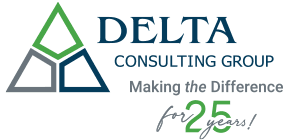March 25, 2025 – by Avi Kamath, Associate Director, Delta Consulting Group
Cryptocurrencies have undergone a massive resurgence, with many recently surpassing all-time high values. These assets have increasingly become more accessible to the general public, as today you can easily purchase a wide variety of cryptocurrency assets or acquire them through a growing number of unique cryptocurrency distribution methods (e.g., mining, staking, airdrops, and faucets). Further, cryptocurrency assets are no longer just speculative assets and can, in fact, generate significant passive income.
Notwithstanding the fact that cryptocurrency has become more accessible, it raises some unique challenges with respect to tax compliance. In the absence of convenient documentation that summarizes cryptocurrency activity, like the tax forms or tax slips issued by financial institutions for traditional investments, every individual or entity holding cryptocurrency assets should be keeping meticulous transaction records for tax purposes. This becomes particularly challenging when engaging in activities unique to a particular cryptocurrency or participating in newly developed decentralized finance (aka ‘DeFi’) applications. To that end, it’s important to know whether your record keeping and reporting is complete and compliant with applicable tax authority requirements.
Critically, the permanent nature of blockchain transactions allows for indefinite scrutiny of historical transactions. It is noteworthy that in cases of fraud or misrepresentation on tax returns, many tax authorities can review tax returns as far back as they choose. As such, a key risk every individual cryptocurrency holder must be able to address is what their ‘blockchain footprint’ reveals and whether they have accounted for it appropriately.
It is anticipated that, with the advances in investigative tools and increasing disclosure from centralized cryptocurrency exchanges, tax evasion and non-compliance will become easier to detect, and dedicated efforts will be made to hold the taxpayer accountable. Taxpayers may even find themselves in a situation where incomplete or inappropriate recordkeeping results in adverse assessments with accompanying penalties and interest (or worse). As such, the expertise needed to trace and account for cryptocurrency assets has never been more critical.
If you have concerns about your cryptocurrency holdings, transaction history, or recordkeeping, we encourage you to reach out to Delta Consulting Group. Missing or deficient cryptocurrency transaction history due to lax recordkeeping can be resolved with a careful and thorough review of available transactional activity performed by our experts, who are experienced in managing the complexity of such an exercise.
About Delta Consulting Group
Since 2000, Delta Consulting Group has provided advisory, risk mitigation and dispute resolution services with prominent global law firms, government agencies, and top companies in over 90 countries. Our multi-disciplined professionals in engineering, accounting, finance, economics, investigations, fraud, construction, project management and litigation support deliver independent advice to resolve our clients’ most complex situations. Delta is a 100% employee-owned company and was named a 2024 Top Workplace by The Washington Post.


